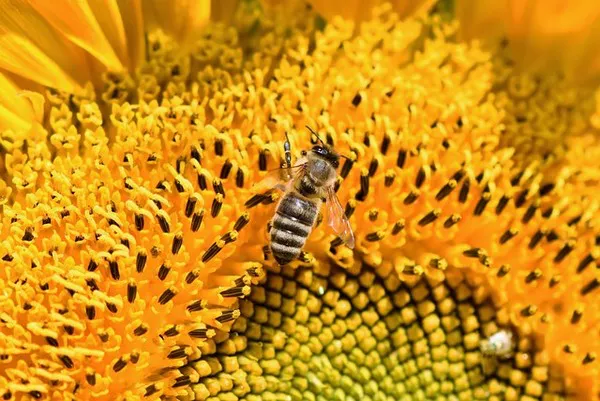Edible sunflower seeds, a popular snack enjoyed by millions around the globe, have a fascinating origin deeply rooted in agricultural history. These nutritious seeds, often consumed roasted or raw, offer a myriad of health benefits and culinary versatility. From their humble beginnings as wild plants to their cultivation on a commercial scale, the journey of edible sunflower seeds is as intriguing as it is delicious.
The Wild Origins of Sunflower Seeds
The story of edible sunflower seeds begins thousands of years ago in the Americas, where indigenous peoples first domesticated the wild sunflower plant (Helianthus annuus). Native to North America, sunflowers were cultivated by indigenous tribes for their valuable seeds, which provided a rich source of food, oil, and medicinal properties.
Historical evidence suggests that Native American tribes, particularly those living in present-day Mexico and the southwestern United States, were among the first to cultivate sunflowers for their seeds. These seeds were prized for their nutritional content and were often ground into flour or pressed to extract oil.
Cultivation and Domestication
The domestication of sunflowers marked a significant milestone in agricultural history. Over time, selective breeding by early cultivators led to the development of sunflower varieties with larger, more abundant seeds. These cultivated varieties gradually spread across the Americas, becoming an essential crop for many indigenous cultures.
European explorers, encountering sunflowers during their expeditions to the New World, recognized their potential as a valuable agricultural commodity. By the 16th century, sunflowers had been introduced to Europe, where they gained popularity both as ornamental plants and as a source of edible seeds and oil.
Expansion and Commercialization
The widespread cultivation of sunflowers expanded further in the 18th and 19th centuries, fueled by advancements in agricultural techniques and the growing demand for sunflower products. Russian farmers played a significant role in the commercialization of sunflower cultivation, developing high-yielding varieties suited to the region’s climate and soil conditions.
By the late 19th century, Russia had emerged as a leading producer of sunflower oil, extracted from the seeds through pressing or solvent extraction methods. Sunflower oil gained prominence as a healthy alternative to traditional cooking oils, contributing to the growing global interest in sunflower cultivation.
Modern Production Practices
Today, edible sunflower seeds are produced on a large scale in numerous countries worldwide, with major producers including Russia, Ukraine, Argentina, and the United States. Modern agricultural practices, including mechanized planting and harvesting, have significantly increased efficiency and yields in sunflower cultivation.
Sunflower seeds are typically grown as an annual crop, planted in the spring and harvested in the late summer or early fall. The seeds develop within the flower heads, which mature and dry out as the growing season progresses. Once the seeds reach maturity, the sunflower heads are harvested and the seeds are extracted for processing.
Processing and Preparation
After harvest, sunflower seeds undergo processing to remove the seeds from the flower heads and separate them from any remaining plant debris. This may involve threshing to loosen the seeds, followed by winnowing to remove the chaff and other impurities.
Once cleaned, the sunflower seeds may be further processed for various applications. Raw sunflower seeds are often consumed as a snack or used as an ingredient in salads, trail mixes, and baked goods. Roasted sunflower seeds, which are popular for their crunchy texture and nutty flavor, are produced by roasting the seeds at high temperatures until they become golden brown.
Nutritional Benefits
Edible sunflower seeds are not only delicious but also packed with essential nutrients. They are an excellent source of protein, healthy fats, fiber, vitamins, and minerals. Sunflower seeds are particularly rich in vitamin E, an antioxidant that helps protect cells from damage caused by free radicals.
Additionally, sunflower seeds contain significant amounts of magnesium, which plays a crucial role in various bodily functions, including muscle and nerve function, blood sugar regulation, and blood pressure control. Other nutrients found in sunflower seeds include folate, zinc, selenium, and various B vitamins.
Health Considerations
While sunflower seeds offer numerous health benefits, it’s essential to consume them in moderation as part of a balanced diet. Like other nuts and seeds, sunflower seeds are calorie-dense, so excessive consumption may contribute to weight gain if not accounted for within daily caloric intake.
Furthermore, individuals with nut allergies should exercise caution when consuming sunflower seeds, as they may trigger allergic reactions in some people. It’s always advisable to consult with a healthcare professional before introducing new foods into the diet, especially for those with known food allergies or sensitivities.
Culinary Uses and Applications
Edible sunflower seeds are incredibly versatile and can be incorporated into a wide range of culinary creations. They add texture and flavor to salads, stir-fries, granola bars, and baked goods, or can be ground into a fine meal for use in gluten-free baking recipes.
Sunflower seed butter, a creamy spread made from roasted sunflower seeds, has gained popularity as a nutritious alternative to peanut butter and other nut-based spreads. It’s a delicious option for those with nut allergies or sensitivities and can be enjoyed on toast, sandwiches, or as a dip for fruits and vegetables.
Conclusion
The journey of edible sunflower seeds from their wild origins to modern-day cultivation and consumption is a testament to human ingenuity and the enduring appeal of this nutritious crop. Whether enjoyed as a wholesome snack, a flavorful ingredient, or a source of essential nutrients, sunflower seeds continue to captivate taste buds and nourish bodies around the world. As we savor the crunchy goodness of these tiny seeds, let us appreciate the rich history and agricultural heritage that have made them a beloved culinary staple for centuries.


